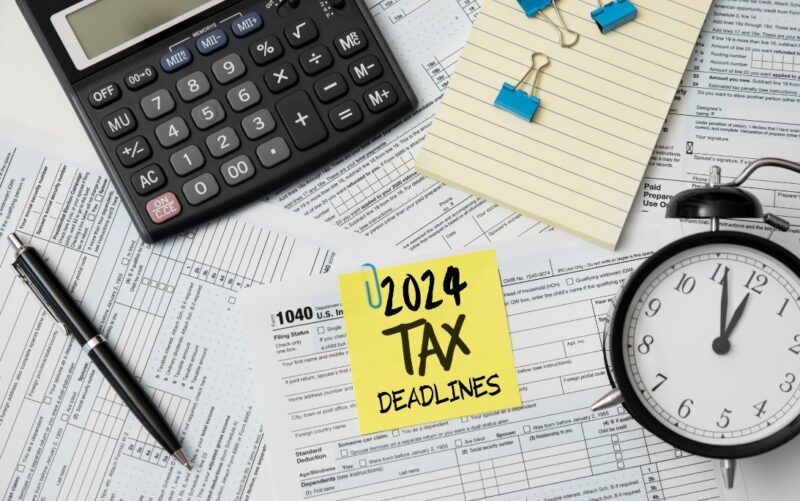Filing taxes as an expat in Switzerland can be a challenging task, especially when navigating different systems and regulations. Expats often face unique situations, including foreign income, double taxation agreements, and various deductions. Knowing how to handle these aspects will save you time and money. Whether you’re new to Switzerland or have been living there for a while, being proactive about your tax obligations is essential to staying compliant with local laws.
For those needing extra help, Simpletax offers expert guidance with their steuererklärung (tax return) service, making the process seamless and stress-free. With 10 branches in Zurich and Aargau, as well as virtual appointments across the country, they cater to expats with personalized tax advice.
Key Points:
- Know important tax deadlines.
- Check your eligibility for deductions.
- Understand double taxation agreements.
- Be aware of wealth tax obligations.
- Consider professional help when needed.
Key Deadlines
Staying on top of tax deadlines is one of the most important things you can do as an expat in Switzerland. Filing late often leads to penalties or interest, which can quickly become expensive. The deadline to submit a tax return usually falls at the end of March for most cantons. However, some may have different deadlines depending on where you live.
You can always request an extension to file your return. In most cases, extensions are granted until the end of November. Keep track of these dates carefully to avoid any unnecessary costs. Expats who are self-employed should pay even closer attention to deadlines, as they may have additional reporting requirements.

Deductions and Allowances
Maximizing deductions can significantly reduce the amount you owe. Expats should familiarize themselves with the deductions allowed under Swiss law. For example, work-related expenses such as transportation costs and contributions to pension plans can be deducted. You may also be able to deduct education expenses if you are pursuing higher studies in Switzerland.
If you’re supporting a family, there are additional deductions for children and dependents. It’s essential to review your eligibility for these to minimize your tax liability. Expats often overlook these opportunities, missing out on savings they are entitled to. Take the time to review your options, and seek professional guidance if necessary.
Double Taxation Agreements
Double taxation occurs when income is taxed in two different countries. Switzerland has agreements with many countries to avoid this. As an expat, this agreement ensures that your income is only taxed once, usually in the country where you are residing. Knowing the specifics of this agreement between Switzerland and your home country is crucial for avoiding unnecessary charges.
Many expats benefit from these agreements, but the exact terms vary depending on your home country. Some countries tax their citizens regardless of where they live, while others follow a residence-based taxation model. It’s advisable to understand how your home country handles this matter to avoid paying taxes twice on the same income.
Wealth Tax in Switzerland
Switzerland imposes a wealth tax on individuals with a high level of personal assets. This includes both Swiss residents and expats. Your assets are assessed based on their worldwide value, which includes property, savings, and investments. The rates for this tax vary from canton to canton, so the amount you owe depends on where you reside.
Expats should be aware of how the wealth tax may impact their finances. Some may need to take specific steps to reduce their taxable assets, such as transferring ownership of certain assets or using tax-efficient investment strategies. A professional tax advisor can help you evaluate your wealth tax obligations and provide advice on how to minimize the impact.

Residence and Tax Obligations
If you are a permanent resident in Switzerland, you will be taxed on your worldwide income. If you’re a temporary resident, you may only be taxed on Swiss-sourced income. Knowing your residency status will clarify your tax responsibilities.
It’s important for expats to understand the different residency statuses and how they affect your obligations. Moving frequently between countries can complicate matters, so it’s essential to keep records and consult with an advisor to ensure you’re paying the correct amount.
Social Security and Healthcare Contributions
As an expat in Switzerland, you’re required to contribute to the Swiss social security system (AHV/AVS) and healthcare. These contributions are often automatically deducted from your salary, but expats should ensure that the correct amounts are being paid.
Failing to contribute to these systems can lead to penalties and may affect your ability to claim benefits in the future. Review your contributions regularly, and speak with a tax professional if you have any doubts. Some expats may also be required to contribute to social security in their home country, depending on agreements in place.
Professional Tax Help
Filing your tax return can be a complex process, especially for expats who must navigate different tax systems. Seeking help from a tax professional with experience in Swiss taxation is highly recommended. They can help you understand the nuances of the system, ensure you are maximizing deductions, and prevent costly errors.
Professionals provide a personal approach to tax services and can handle all aspects of your tax return, leaving you free to focus on other priorities. Having them to review your return will give you peace of mind and ensure you’re meeting all your obligations.

Avoiding Common Pitfalls
Many expats make the mistake of not declaring their foreign income. Switzerland requires all residents to declare their worldwide income, even if it’s taxed in another country. Failing to report foreign income can result in penalties and back taxes. Be thorough in reporting all sources of income.
Another common mistake is missing out on deductions that expats are eligible for. Make sure you claim all possible deductions, such as those related to pension contributions, childcare, or education. Keeping detailed records will help you claim these deductions and reduce your tax bill.
Conclusion
Navigating the Swiss tax system as an expat doesn’t have to be overwhelming. By staying aware of important deadlines, claiming all eligible deductions, and seeking professional advice when needed, you can avoid costly mistakes.
Whether you’re dealing with double taxation, wealth tax, or social security contributions, being proactive is key to staying compliant. Taking a methodical approach to your taxes will save you time, reduce stress, and help you meet all your obligations.









